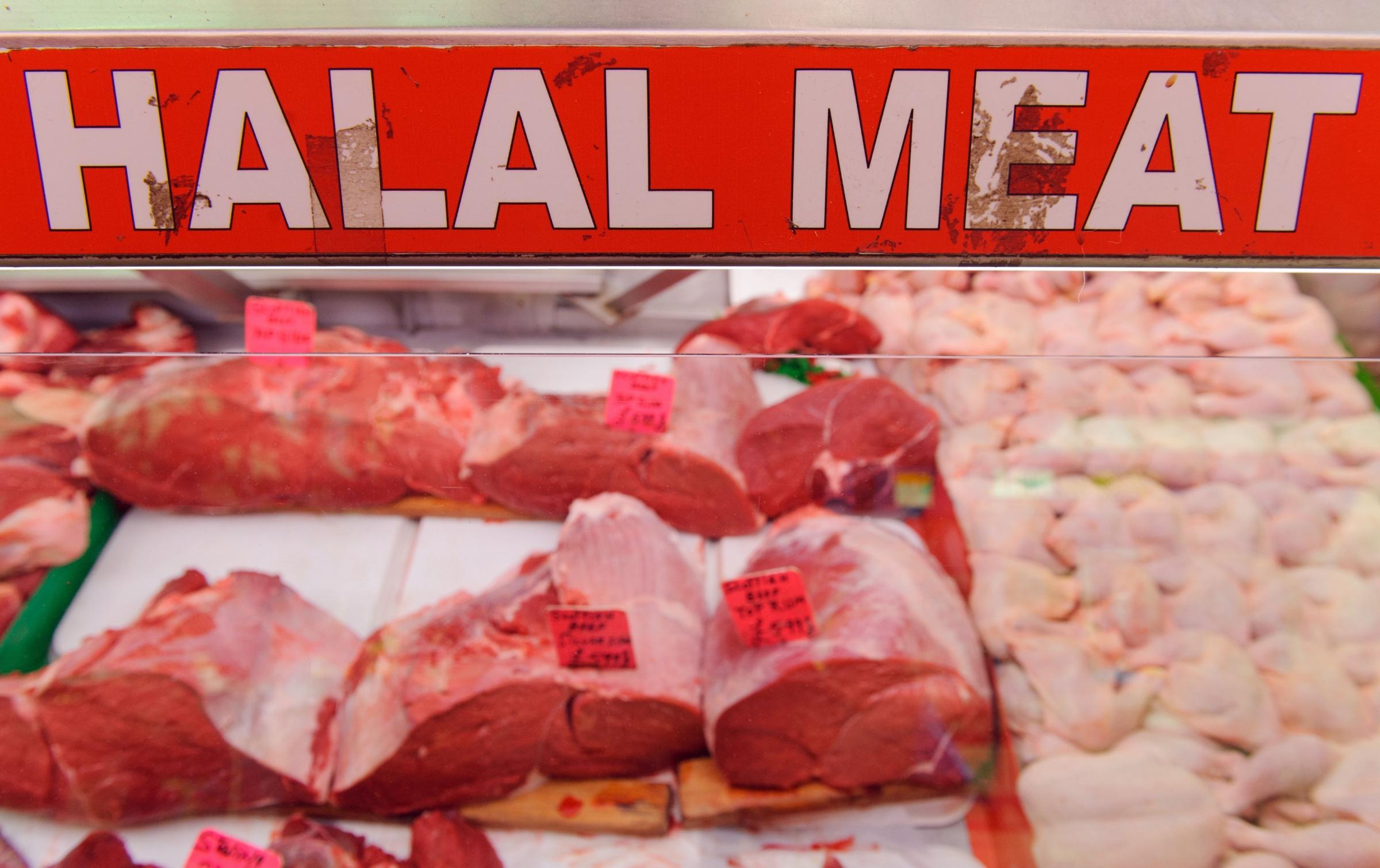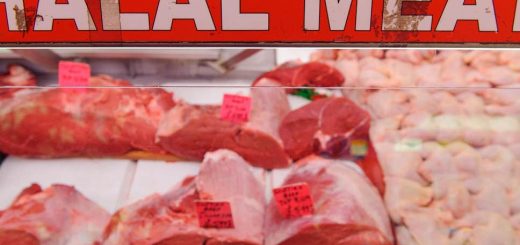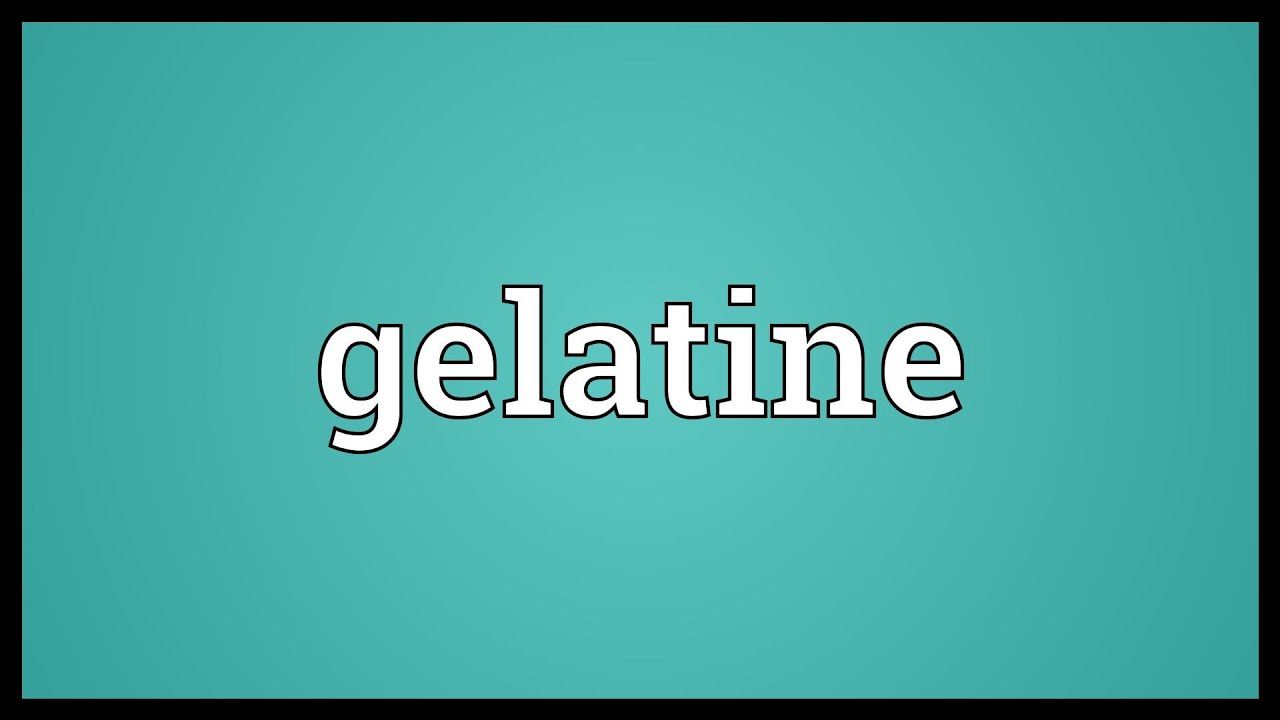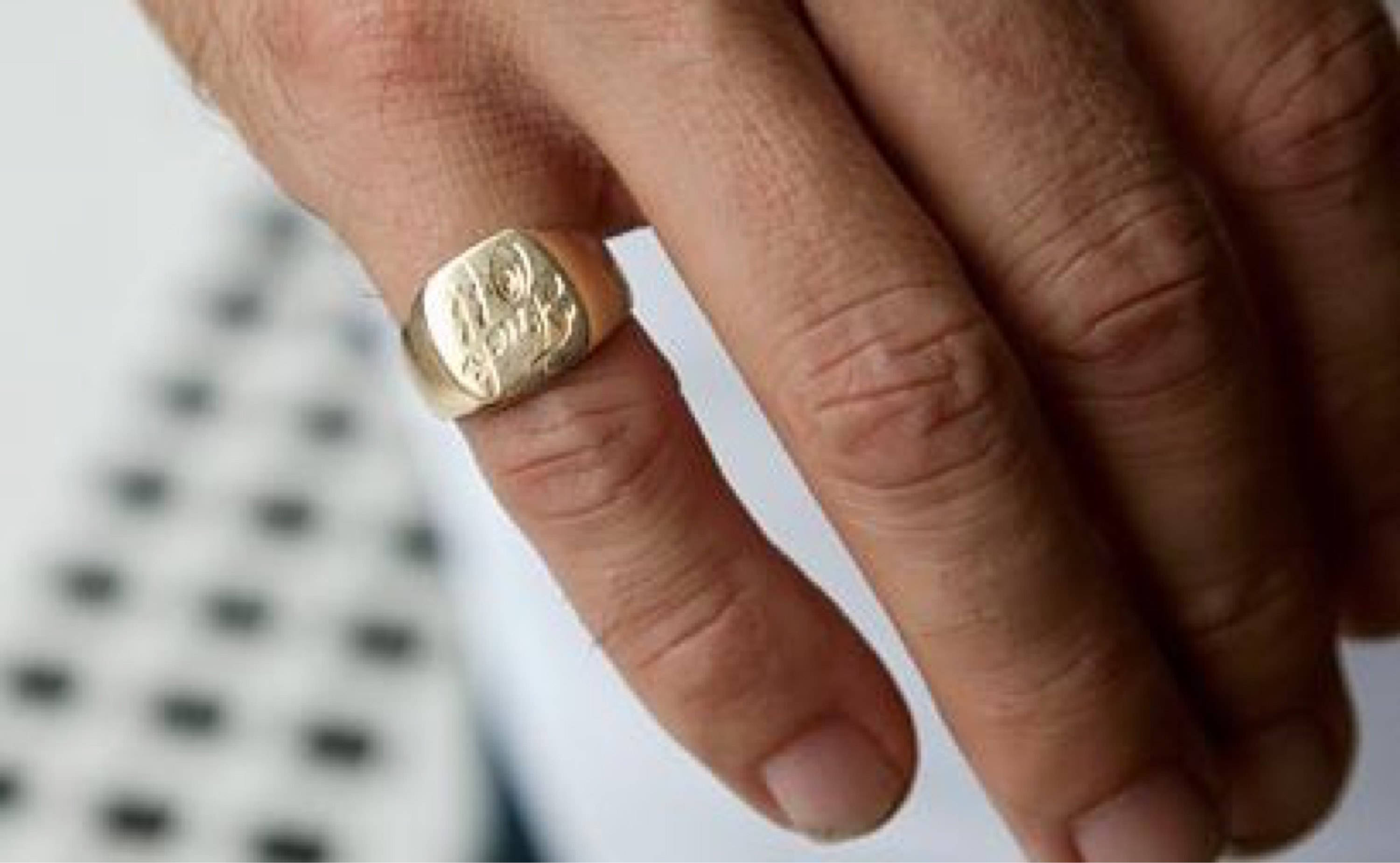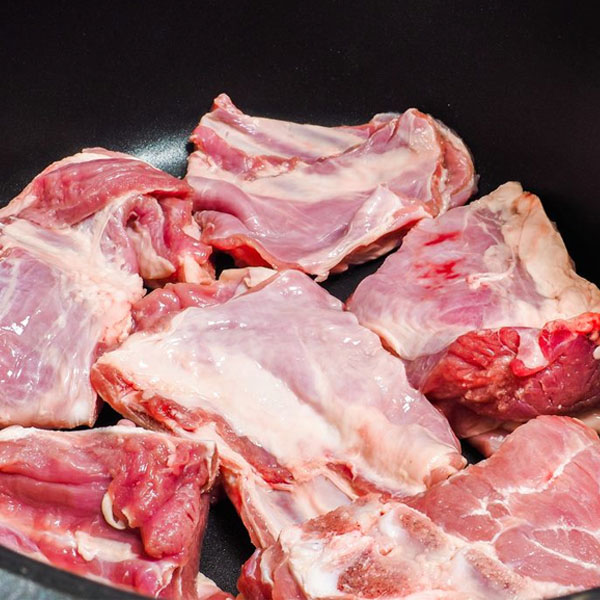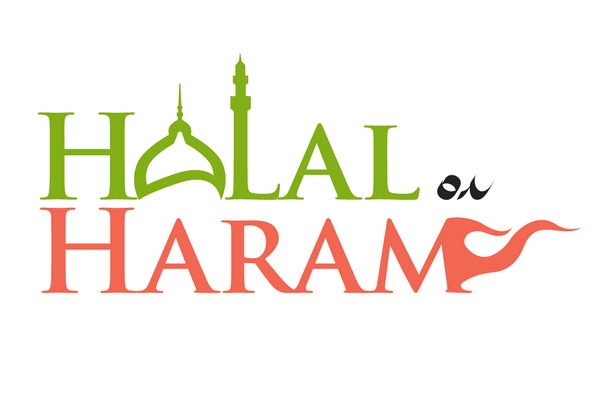QUESTION:
What do the respectable ‘ulamā and muftīs of Islām say regarding a person claiming that he is serving halal meat at his restaurant, are we permitted to eat from there? Furthermore, are we allowed to consume such meat which has a halal stamp on it without researching regarding that meat. Also, what is the principle if a Muslim says that this meat is Halāl, is it permissible to consume that meat?
Questioner: Umar from UK
ANSWER:
بسم اللہ الرحمن الرحیم
الجواب بعون الملک الوھاب اللھم ھدایۃ الحق والصواب
Nowadays in England many restaurant owners proclaim meat to be Halāl merely based upon the Halāl label on the meat. Their saying that this meat is Halāl is of no consideration because neither have they seen a Muslim slaughter that meat nor do they have the report of such a Muslim who saw the Sharī’ah stipulated slaughtering process.
If a reliable, practising Muslim saw the Islamic slaughter process and he informs people that the meat is Halāl and it has not gone out of his supervision into the custody of a non-Muslim, then people having certainty over his informing, buying from him and eating that meat are all permissible. If the Muslim informing about the meat being Halāl is not reliable and upright, then if one’s heart becomes tranquil and accepting in relation to his informing of that, then purchasing and eating that meat is permissible, otherwise it is not.
It is stated in Tanwīr al-Absār with its commentary Durr Mukhtār,
“وَشُرِطَ الْعَدَالَةُ فِي الدِّيَانَاتِ وَيَتَحَرَّى فِي خَبَرِ الْفَاسِقِ وَ خَبَرِ الْمَسْتُورِ ثُمَّ يَعْمَلُ بِغَالِبِ ظَنِّهِ”
“The ‘adālah (religious uprightness) of an individual is a condition in the matters of Diyānāt [Halāl and Harām] and one should investigate the information of a sinner and of the one whose state is hidden and act according to one’s predominant opinion.”
[Durr Mukhtār sharh Tanwīr al-Absār, vol 2, pg 237]
A’lā Hazrat Imām Ahmad Ridā Khān (may Allāh shower him with mercy) has stated in al-Fatāwā al-Ridawiyyah, that if the slaughtered animal has not left the sight of the Muslim who carried out the slaughtering, or another Muslim [who has seen the slaughter take place], then acting upon the report of this person that this is the very meat that a Muslim has slaughtered in buying and eating will all become permissible. This is because this is the report of a Muslim and not a disbeliever. However if the one reporting this a non-trustworthy Muslim then this matter will be conditional on the heart settling upon the truthfulness of his reporting.
[al-Fatāwā al-Ridawiyyah, vol 20, pg 285]
One should remember that the meat of Halāl animals is only Halāl for consumption when it is slaughtered in the Islamic way. For example, as long as a cow is alive its meat is Harām to consume. Only when this animal has been slaughtered in the Islamic way, that is when a Muslim slaughters it by mentioning the name of Allāh, will this animal’s meat then become Halāl for consumption. When something only becomes Halāl through the Islamic method of slaughtering, then having certainty in knowledge that this method of slaughtering has taken place becomes necessary; this will be established when one has seen this with one’s own eyes or through the report of an upright Muslim who witnessed it himself.
Sayyidī A’lā Hazrat Imām Ahmad Ridā Khān (may Allāh shower him with mercy) has stated in al-Fatāwā al-Ridawiyyah that the original rule concerning meat is that an animal’s meat, such as a cow for example is Harām in terms of consumption as long as it is alive. If a portion was severed from an animal, it would be considered carrion and Harām. “ماابین فی حی فہو میت” “That which is severed from a living animal, so it is carrion.” The meat of an animal will only be Halāl if it is slaughtered according to Islamic law. Thus if such slaughtering is not known and confirmed then that meat will be judged as forbidden in terms of consumption. If a non-Muslim arranged for a Muslim to slaughter some animals and before the animals left that Muslim’s sight, another [Muslim] purchased them, then this is permissible. [What] if a Muslim slaughtered the animal and the meat left his sight and now the non-Muslim wants this meat to be deemed pure and Halāl? Being Halāl or Harām, purity and impurity; [these are] are purely religious matters and in these matters the report of a non-Muslim is absolutely disregarded.
[al-Fatāwā al-Ridawiyyah, vol 20, pg 290]
If the owner of a restaurant did not see the slaughtering take place himself but he informs people that he bought it from were there is only Halāl [slaughtering]. Or there is such supporting evidence that strengthens certainty and in light of this supporting evidence no doubt is brought about, then there is no harm in having certainty in the report of this Muslim; to buy from him and eat that meat is permissible. One comes to know that if from the point in time of a Muslim slaughtering an animal, it does not leave the sight of a Muslim until it reaches the hands of another Muslim, even if it passes through the hands of non-Muslim during that time, then it is Halāl.
Yes there is one scenario in which if meat slaughtered by Muslims goes into the custody of a non-Muslim and is hidden from the sight of a Muslim, so it is still Halāl. That is when a Muslim sends a non-Muslim servant of his to get meat, and he purchases it and brings it and says I bought it from a Muslim, and in light of supporting evidences no doubt occurs, then it is permissible for him to eat it. Just as is mentioned in al-Hidāyah,
“وَمَنْ أَرْسَلَ أَجِيرًا لَهُ مَجُوسِيًّا أَوْ خَادِمًا فَاشْتَرَى لَحْمًا فَقَالَ اشْتَرَيْته مِنْ يَهُودِيٍّ أَوْ نَصْرَانِيٍّ أَوْ مُسْلِمٍ وَسِعَهُ أَكْلُهُ لِأَنَّ قَوْلَ الْكَافِرِ مَقْبُولٌ فِي الْمُعَامَلَاتِ“
“Whoever sent a Majūsī worker of his or a servant and he purchased meat and said, ‘I bought this from a Jew or Christian or Muslim’, then it is permissible for him to consume it because the statement of a disbeliever is accepted in transactions.”
[al-Hidāyah, vol 4, pg 451]
Sayyidī A’lā Hazrat Imām Ahmad Ridā Khān (may Allāh shower him with mercy) mentions in al-Fatāwā al-Ridawiyyah that if a Muslim sent his polytheist servant or worker to bring meat and he purchased it and said, “I bought it from a Muslim”, it will be permissible for him to consume it when the truth of what he says is firm in his heart. This is because this is explicit in being from transactions and the statement of a disbeliever is accepted in transactions, even though it will now implicitly include a shar’i ruling.
[al-Fatāwā al-Ridawiyyah, vol 20, pg 290]
In Bahār-e-Sharī’at it is mentioned that if a Muslim sent his servant or slave to bring meat, even if he was a Hindū or a Majūsī, and he said, I bought it from a Muslim or a person from the Ahl al-Kitāb, then this meat may be eaten. If he said I purchased it from a polytheist, for example a Majūsī or a Hindū, then it will be Harām for him to consume it. This is because buying and selling is from transactions (mu’āmalāt) and the informing of a disbeliever is acceptable in transactions. Even though permissibility and impermissibility are purely religious matters and the statement of a disbeliever is not accepted in them, however because the original statement is concerning buying and in this place permissibility/impermissibility is an implicit matter, then when that statement is accepted this will also be established. If the original statement is about permissibility or impermissibility, then that statement is not acceptable.
[Bahār-e-Sharī’at, vol 3, part 16, pg 398]
Elsewhere in al-Fatāwā al-Ridawiyyah, Sayyidī A’la Hazrat Imām Ahmad Ridā Khān (may Allāh shower him with mercy) mentions that if in light of supporting evidence no doubt is brought about regarding the statement of this disbeliever [who is the servant of a Muslim] and one’s predominant opinion falls upon its truthfulness, there is no harm in a Muslim consuming that meat. This because bringing a gift is from the perspective of transactions (mu’āmalāt) and a disbeliever’s word is accepted in transactions. When it has been accepted that this meat is sent by such and such a Muslim, so it being Halāl will be implicitly accepted, even though from the outset the report of a non-Muslim is not acceptable in purely religious matters; of something being Halāl or Harām its purity and impurity, etc.
[al-Fatāwā al-Ridawiyyah, vol 20, pg 290]
Yes if a disbeliever other than one from Ahl al-Kitāb says “This is a Muslim’s slaughtering”, then his statement is not accepted because in this scenario he is not informing about purchasing the meat from a Muslim [if he was informing about buying from a Muslim, it would be a statement about a transaction as buying is from transactions], rather he is informing that the meat is Halāl and that is from the perspective of purely religious matters and the statement of a disbeliever is not acceptable in such.
Just as Sayyidī A’lā Hazrat Imām Ahmad Ridā Khān (may Allāh shower him with mercy) has stated that if a disbeliever who is not from the People of the Book even says that this is the slaughter of a Muslim, then this statement is specifically in terms of a purely religious matter of permissibility and impermissibility, and in these matters the informing of a disbeliever is absolutely invalid and unacceptable.
[al-Fatāwā al-Ridawiyyah, vol 20, pg 283]
In countries like England, there are Muslims who slaughter according to the Islamic method and personally deliver the meat to the homes of Muslims. If this is established, then such meat becomes free from doubt and suspicion and such a process is not impossible. There is one such brother of ours who has a small Halāl meat business slaughtering animals and supplying their meat in England. With the intention of helping Muslims, I am mentioning his name and number:
Khādim Husain: 07914717090
واللہ تعالی اعلم ورسولہ اعلم صلی اللہ علیہ وآلہ وسلم
کتبہ ابو الحسن محمد قاسم ضیاء قادری
Answered by Mufti Qasim Zia al-Qadri
Translated by Zameer Ahmed and Mawlana Ibrar Shafi
Read the original Urdu answer here – [Q-ID0259] Buying ‘halal’ meat without investigating where and from whom it has come
Also see:
[Q-ID0224] Are hair-styles of today allowed in Islam?
[Q-ID0228] What is the Islamic ruling on taking out a Life Insurance policy in the UK?
[Q-ID0240] Is white wine vinegar or spirit vinegar Haram?
[Q-ID0247] Can a woman work in a place where non-Mahram men are present?
[Q-ID0251] Is Coca-Cola halal or haram?
[Q-ID0260] Is it permissible to take out a mortgage in England?
[Q-ID0329] What is the ruling on eating Ojri (stomach) and brains of an animal?
[Q-ID0368] Is pre-stunned chicken and meat Halal or Haram?
[Q-ID0382] Are Mcdonald’s fries Halal? Can I eat them if I have doubts?
